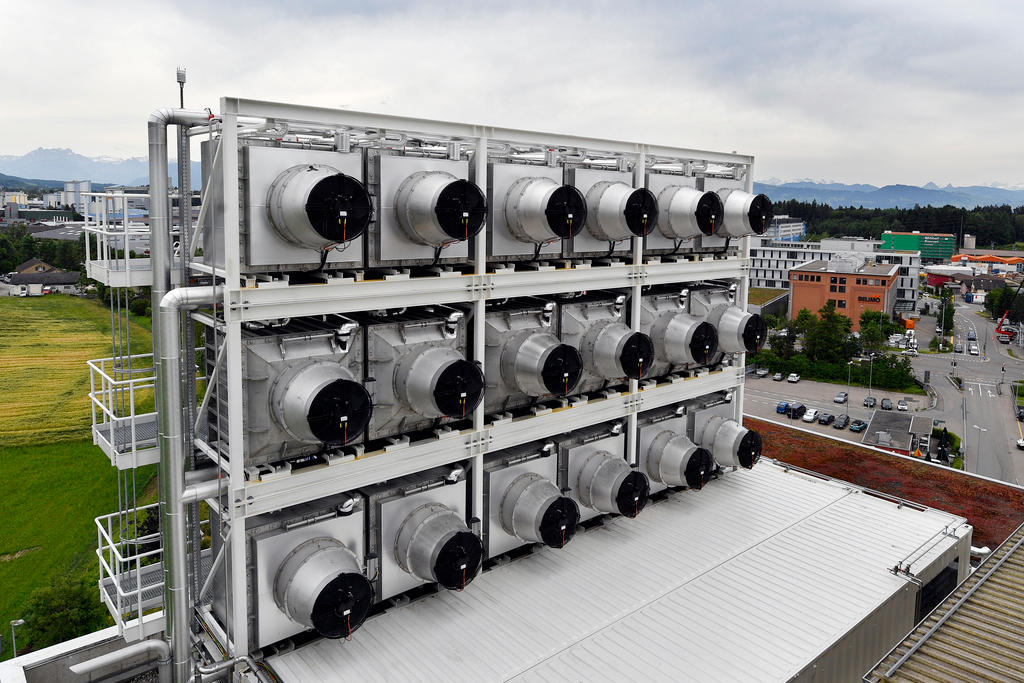
Scientists discover what types of forests store CO2 best

Forests help mitigate carbon dioxide emissions by capturing it. To make the most of this natural phenomenon, an international team of scientists led by the University of Geneva (UNIGE) has defined which types of forests can store the most carbon and under what conditions.
The results of their study, published in Nature Communications, are valuable in defining natural strategies to combat climate change, the UNIGE said on Friday in a statementExternal link. Two opposing hypotheses are at the basis of their work.
A first hypothesis suggests that species diversity would allow for denser stacking and niche compartmentalisation that would favour the abundance of trees within a forest. This abundance would increase the forest’s carbon storage capacity.
According to the other hypothesis, it is not diversity that allows tree abundance but the availability of energy substrate. Areas with higher energy content allow more trees to thrive per unit area and thus increase carbon recapture.

More
Is sucking CO2 from the air the answer to global warming?
In order to determine which hypothesis is most likely, the researchers used inventory data from forests on five continents. Their conclusion is clear: species diversity is optimal for equatorial and tropical rainforests, but in forests in cold or dry regions it is the abundance of trees rather than their diversity that favours CO2 recapture.
Practical relevance
The findings of these studies were of substantial practical relevance as they would help decision makers identify nature-based climate change mitigation strategies, the UNIGE said. It added that decision makers would also be able to use forests and their sequestration of carbon to reach the climate goals defined in the Paris Agreement.
“Increasing climatic stress in the most productive forests of the planet could diminish or even collapse the role of diversity against climate change,” said Markus Stoffel, professor at the Institute for Environmental Sciences of the UNIGE.

More
Switzerland signs Paris climate agreement

In compliance with the JTI standards
More: SWI swissinfo.ch certified by the Journalism Trust Initiative































You can find an overview of ongoing debates with our journalists here . Please join us!
If you want to start a conversation about a topic raised in this article or want to report factual errors, email us at english@swissinfo.ch.